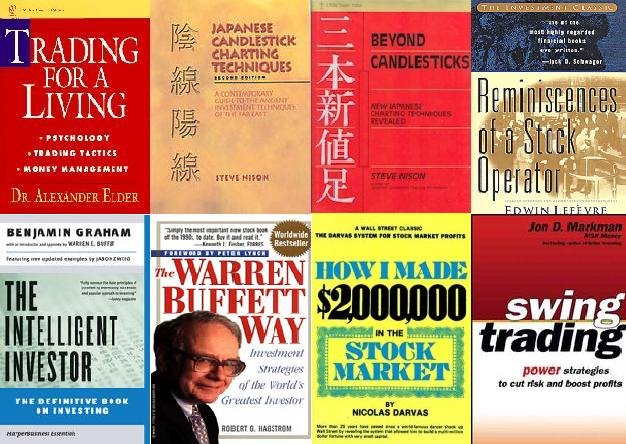
Ever wondered what exactly it means to be a shareholder? What it means when you purchase the scripts of paper (or rather the numbers in the statement)? And why does certain counters are more preferable by many than the other?
You may think its the charisma of the CEO, or maybe the strong management team, or perhaps the strong branding of the company or maybe the stock just have chemistry with you. These are perhaps all important, but to the end, it all boils down to dollars and cents. Rewards.
There are a number of ways a company could reward its shareholders. How? Let's look at it more in depth:
1) Dividends

This is something many loved. There is even groups of people who merely invests just for the dividend. These are normally the more risk adverse investors whose strategy is to keep buying good dividend stock. With good money management, this strategy works.
Basically, the idea is like savings. Every month, instead of saving it in a bank, you purchase a dividend stock. The return per annum is higher than the bank. And you stand to gain for more if there is a capital gain. This strategy works best for working professionals who want a retirement fund.
Another shorter term strategy is to look at historical dividend declaration dates. Anticipate when the next dividend would be declared and purchase the stock. Once dividend is declared, stock price will spike up, normally. Instant gain, low risk.
The theory from textbooks is that your wealth really doesn't change. Once you purchase the stock and receive the dividend, the share price will fall - so you re back to square one. However, in practice, the norm is that the share price will appreciate back to at least where it started.
2) Capital Repayment
This normally comes as a sudden surprise. Everybody loves them.
The idea is the same as dividend play, however, the anticipation would be much more difficult.
3) Bonus Issue
Free shares for every certain number of shares held. Simply great!
One point to note is that once a bonus issue is given, the liquidity of the shares increases. There are more shares now in the market. Hence price may take some time to consolidate prior to recovering to its previous price.
Again, the idea and theory is similar to Dividend Play. Anticipation, however, are difficult.
4) Rights Issue

Frankly, this is not exactly a reward to shareholders. More like a threat, if you ask me.
The idea is this, the company needs cash. Instead of borrowings from the bank, the company declares rights issue. If you hold a certain number of shares, you are eligible to subscribe to a number of shares for a fixed price.
The theory from textbooks is simple - if you exercise your rights issue, your wealth does not change. If you don't you lose out, as share price will fall, but there is no additional shares from rights issue to compensate the drop.
Do take note of the difference between Rights Issue and Bonus Issue.
5) Share Buyback

This is interesting. How does share buyback affect the share price?
Direct impact - as a support to the share price. As the company conducts share buyback exercise, this would serve as an additional support to the share price. Confidence of retailers may also be boosted and may charge in to support alongwith the company. Hence, a falling dagger may be stopped.
Indirect impact - Imagine a pie is to be shared among 8 person. So each gets 1/8 of the pie. Now what happens, if the pie is only to be shared by 5 person? Each gets 1/5 of the pie.
The pie remains the same, but each person gets a larger slice.
Same theory applies to share buyback exercise. What share buyback also achieves, is reducing the number of shares in the company. Since there are less people to share with, there ll be more for everyone, even if the earnings remain the same.
6) By retaining all profits to expand the business

It is often very easy to jump the gun and say that if a company does not declare dividend, it has bad management. However, this may not be the case. A business needs to retain its profits in order to survive, to stay competitive and to expand. Depending on the business model, some industry require heavy reinvestment in order to stay competitive. Failure to do so, would spell disaster for the future of the company.

One notable example is Proton, who has failed to keep its technology up to date. For decades, Proton has dominated the Malaysian car market and they took this for granted. There weren't new models around to replace its old ones. Quality remained an issue after 30 years. Simply a disgrace! This would be a case of bad management. And it has nothing to do with dividend declaration or not. The idea is cash management.
How does the Company manages its cashflow tells us a lot about the company.
Also, in a fast moving industry, such as the IT industry, the company should ensure that there is sufficient cash for Research and Development. Otherwise, its competitive edge, will be lost when its rivals gain key technology which could render the Company's technology obsolete!
In addition, there may be instances where the company would be best to delay or reduce its dividend policy to finance an expansion. This is especially if the expansion would yield a key strategic importance to the company.
All in all, this is in view of the longer term of the Company.
Misuse and Abuse.

Above are all theories and concepts in an ideal world. In real world however, misuse and abuse are rampant.
As you know, most directors are major shareholders in the companies in Msia. The main reason for a large dividend payout is not to benefit shareholders per se, but to ensure their own benefit is secured. It may also be done at the expense of the future of the company, shorttermism rears its ugly head.
Furthermore, there are also companies who misuse the funds of the company to pursue a share buyback program. This is so that they could dispose their large block of shares at a higher price while the company buys them back. In the end, once the share buyback program ends, share price would be unsustainable and fall. The unscrupulous director who was the one that initiated the share buyback program, sold his shares, can now buy back his own shares at a much lower cost.
So let us all be aware of all the aspects that there is. Cheers!




3 comments:
You're so right on the rights issue. Don't know why malaysian investors are so passive when some company announces rights issue (sometimes to pay for overextended borrowing, sometimes because the arseholes lose so much of the company's capital thru bad business decision). It's like the arseholes finish the money they have and want us to fork out more so they can stay in business. knn...
Exploiting share-buy-back program by unscrupulous directors is an opportunity for you to unload your shares. If you pay attention to the manner the shares are bought back, you can easily identify what is happening.
U buy a cow for its milk or its meat.
U buy shares for its dividend or capital appreciation.
Dividend easy to measure!
capital appreciation must be the value creation action that generate higher shareholder value.
Higher stock price does not mean value creation it could be temp demand/supply situation.
Post a Comment